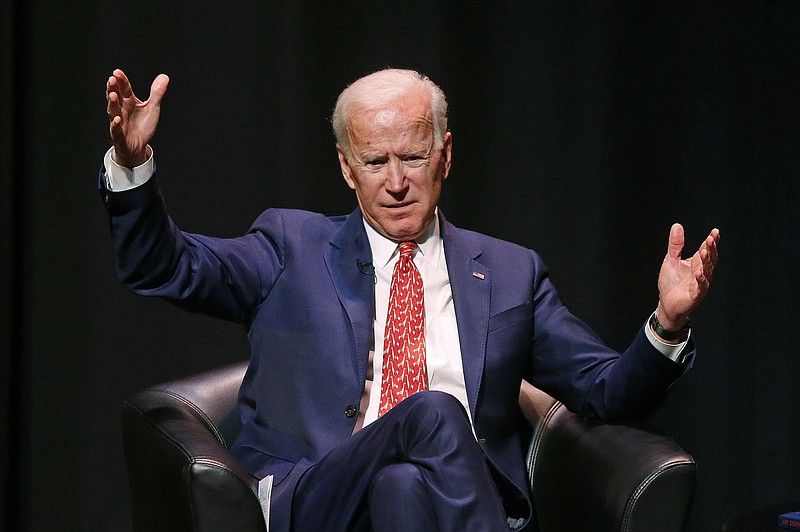Poor Joe Biden. In addition to determining whether he, a 76-year-old man (77 in November), is up for a run for president in 2020, he's also having to figure out how much to hate.
The former Delaware senator and vice president, who had a Senate reputation for being tough but genial, is already being pushed by what he called the "New Left" in a speech over the weekend.
"I know I get criticized by the New Left," Biden said.
Specifically, he recently got lambasted when he described his successor, Vice President Mike Pence, as a "decent guy." Indeed, it wasn't even the first time he'd used the words to describe the Indianan that way.
But Biden heard about his indiscretion, about saying something correct about someone most people think is, well, a decent guy.
"You've just called America's most anti-LGBT elected leader 'a decent guy,'" tweeted activist and actress Cynthia Nixon. "Please consider how this falls on the ears of our community."
Biden had a choice. He could stand up for a man he knows, for what he knows to be accurate, for a man who - like millions of other Americans - holds traditional Christian views about sexuality. He even could have maintained that Pence was his friend but that Pence held different opinions on sexuality than he did.
Or he could pander to that New Left, the wing of his party most 2020 Democratic presidential candidates are embracing, the wing that puts hate before policy, intolerance before tolerance, confrontation before compromise.
"You're right, Cynthia," he ultimately said. " there is nothing decent about being anti-LGBTQ rights, and that includes the vice president."
But the betrayal must have gnawed on Biden, who can recall when compromising with Republicans on legislation was the way to get meaningful bills passed in Washington, D.C. So he told the International Association of Fire Fighters last week that fostering civility and consensus is the Delaware way, in essence meaning that it is his way.
"If you notice," he said, "I get criticized for saying anything nice about a Republican. Folks, that's not who we are. We don't treat the opposition as the enemy. We might even say a nice word every once in a while about a Republican when they do something good."
Poor Joe. In the run-up to 2016, he was similarly caught but in that case between challenging the already declared Hillary Clinton, who was denied the nomination once, and monitoring the grave illness of, and then grieving for, his son, Beau, who died in May 2015.
In a memoir "Promise Me, Dad," Biden writes of the indecision about running that followed him all the way until October of that year when he finally said he wouldn't be making the race.
Nevertheless, the former vice president is likely the last of the big names to make a decision about his 2020 candidacy.
On the one hand, Biden sees encouraging polls that show him leading the other far left candidates. On the other hand, he is also a straight white male in a party that increasingly wants anything but what he is. He would have to trample women, candidates of color and even a candidate who is openly gay to get the nomination and, en route, say less than flattering things about them.
But in today's politically correct society, and despite his proclamation over the weekend that "I have the most progressive record of anybody running," any untoward word from him is bound to be twisted, spun and turned around as coming from an example of male white privilege.
While Biden ponders his capacity to run and to hate, we think of Tennessee Republican Sen. Lamar Alexander, who year after year seems to hammer together bipartisan legislation involving education, health and conservation, and manages to couch his disagreements with Democrats in language about working together to get things done.
And we remember former Sen. Bob Corker, who used to scoff in editorial board meetings with the Times Free Press about the supposed hate ginned up in national publications between senators of the two parties over various issues. Senators can disagree about policy, he would say, but generally are able get along with each other.
Much of that may have changed with the New Left to which Biden referred. Compromising with President Donald Trump, praising Vice President Pence, putting together deals with Republicans to help the America people are not the group's style.
So the former vice president, who also is likely to be more of a realist, one not anxious to jump on the Green New Deal, government-as-wage guarantor and packing the Supreme Court, is going to have to decide where, or if, he fits into a race of candidates who only a few years ago would have been known as outliers. And just how much he is willing to hate if he does so.
